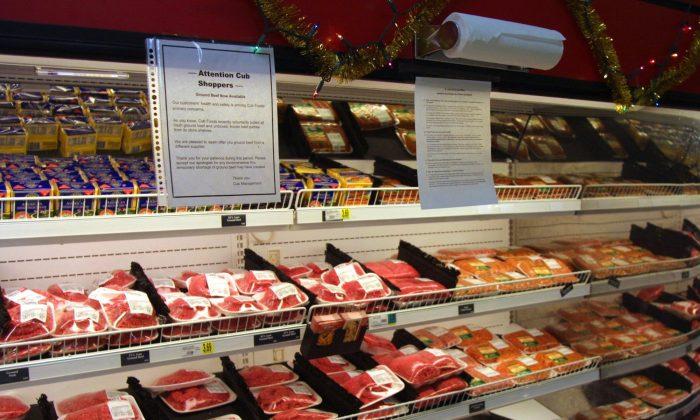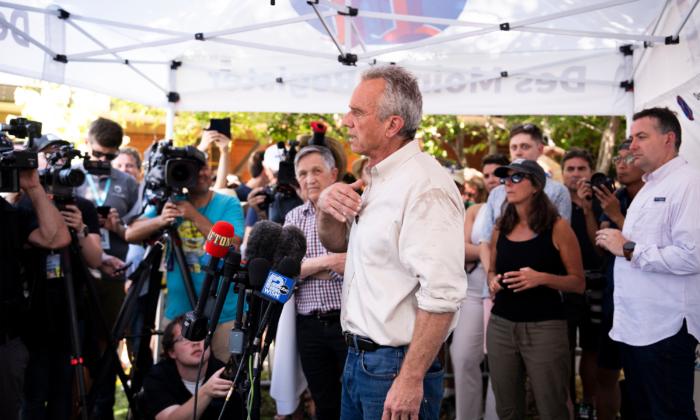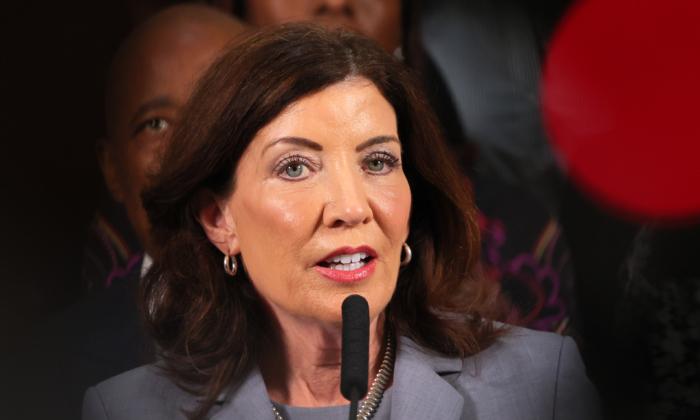The United States and its allies will impose new sanctions this week on Russia in order to punish the Kremlin for the war in Ukraine.
Deputy U.S. Treasury Secretary Wally Adeyemo announced on Feb. 21 further efforts to prevent Russia from evading sanctions and export controls, aimed at pressuring it to withdraw from its neighbor.
Adeyemo said that more than 30 countries, led by the G-7, the European Union, and the United States, agreed to inhibit Russian purchases of dual-use goods, which contain semiconductors needed for its military.
The deputy said that the Western-led coalition—“representing half of the global GDP”—is prepared to use sanctions, export controls, and other tools to warn that those continuing to do business with Russia, “or provide material support to Russia,” will face the consequences, such as sever sanctions if they persist.
The additional sanctions would expand efforts to stem the international shipment of Russian oil and other restricted goods through bordering countries, Adeyemo said, without giving details.
“The breadth of this coalition is what will enable us to continue to isolate Russia,” according to prepared remarks from Adeyemo’s speech to the Council on Foreign Relations today, Reuters reported.
Feb. 24 will be the one-year anniversary of the Russia-Ukraine conflict.
“We will force those that fail to implement our sanctions and export controls to choose between their economic ties with our coalition of countries or provid[e] material support to Russia, an economy that is becoming more isolated every day.”
Russian Trade Continues to Grow With China
Meanwhile, Russian trade has increased with several of its neighbors and long-standing allies, like India and China.
This has caused concern among supporters of Ukraine—that Moscow is still able to skirt export controls by having restricted goods imported to its neighbors and then receiving supplies in exchange across the border.
One of the biggest worries is the rising amount of Russian trade with China, which still provides key technologies, like semiconductors, to Moscow.
However, Adeyemo is expected to say that he is confident that China is not able produce the advanced semiconductors which the Kremlin needs to replace the military equipment lost since the start of the war.
“Nearly 40 percent of the less advanced microchips Russia is receiving from China are defective,” according to Adeyemo.He earlier told reporters at a press conference on Feb. 20 that the Biden administration plans to directly inform Chinese-owned companies and banks that they will face sanctions if they provide support to Russia.
The Treasury Department has proof that firms from both India and China are continuing to evade Western sanctions against Russia, he told Reuters last week.
US to Punish Sanctions-Defying Countries
Adeyemo explained that Washington is providing intelligence to several countries to make them aware the U.S. coalition knows that their companies are not obeying the sanctions.If those nations fail to act on the data, the Western powers “are prepared to use the various economic tools at our disposal to act on our own,” with a threat to cut them from Western markets and financial networks, he said.
Moscow has reportedly diverted billions in assets to pay for insurance, shipping, and other costs during the war, but that the White House would seek “additional ways to drive up” those costs, said the Treasury official, without elaborating.
Adeyemo admitted that Russia has done better than expected economically since the start of the war, but that the sanctions were forcing Moscow to use up its limited financial resources to prop up its economy.
“One year into this conflict, Russia’s economy looks more like Iran’s and Venezuela’s than a member of the G20,” according to the draft of his speech, referring to the group of 20 major economies.





